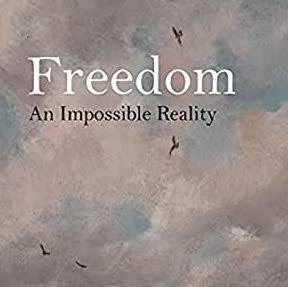It’s almost time to wrap up 2013. It’s been a year of big changes and new beginnings for us here at the Rationalist Association: In January, we launched our sleek new website rationalist.org.uk, which has since become an active platform for articles and posts on science, politics, culture, and humanist thought. In August, we said goodbye to our editor Caspar Melville, who had been with the RA and New Humanist for 8 years. Daniel Trilling, our new editor, took the reins in September. And in November, our very own New Humanist magazine went through a complete redesign, the result of which can now be seen in the Winter 2013 issue.
We finished the year with bittersweet feelings as our annual benefit Nine Lessons and Carols for Godless People had its final glorious 10-night run. The show’s creator and host Robin Ince has hinted there might be a successor to his godless Christmas jamboree, so keep your eyes open for future announcements.
So, to recap, here are the top 10 most-read stories of 2013.
Yes, Ann, I am having a laugh: Terri Murray says no ideas – even religious ones – should be protected from satire
“Religious ideas such as the transubstantiation (the miraculous transformation of bread and wine into body and blood) ought to be quintessential targets for humour and debate – not exempt from it! Protecting these doctrines from criticism ensures that the most bizarre beliefs will never be subject to critical reflection.”
Seeing reason: Jonathan Israel's radical vision: Kenan Malik follows the Enlightenment historian down the dark alleys of the Age of Reason
“If you are going to construct a moral order in the modern world what other basis do you have?” asks Israel. “If it is not the voluntaristic preferences of some divinity to be interpreted for us, then the only way we are going to come to an agreement is if we agree to consider our interests as equal. Why would we agree to cooperate unless we start by saying, ‘OK, we want different things but we will treat each other as moral equals.’”
The rationalist way of death: How should the non-believer mark death, asks Jonathan Rée
“ To love someone is to treasure the hint of a smile, the strength of a hand, the set of a jaw, the plant of a foot or the curl of a lock of hair. And one of the disconcerting things about death is that it does not immediately annihilate these charms, as we might expect and even hope: more than a trace of them lingers in the cold corpse. A fuss about a trifle, of course. Or perhaps not. It is easy to mock the foibles of others; rather harder to face up to our own.”
Beyond Dawkins: Our new editor Daniel Trilling started with a bang
“The great paradox of organised religion is that in offering a better life in the next world, it is making a comment on the inadequacy of the lives we live now. For those of us who don’t believe in an afterlife, that gives us no option but to change this world – but we can’t do it alone. That’s why the key to political progress is an ability to find common ground between people of different religious beliefs and none. It’s why we don’t want unelected bishops making our laws, but it’s also why we don’t want laws that stigmatise or discriminate against religious minorities.”
The magic of Derren Brown: AL Kennedy writes about her favourite entertainer
“Mr Brown is a master showman. A number of other things, too: atheist, sceptic, rationalist, parrot-fancier, openly gay man in a very un-openly-gay profession, and gentleman. But he’s a showman right into the soles of his often exquisite shoes. Watching him is an education if you ever want to stand in front of an audience in any capacity yourself.”
The dark side of Buddhism: It may look good on paper, but there is darkness in karma too, writes Dale DeBakcsy.
“So, it's not really a choice between Feeling Good and Truth. It's a choice between being able to unambiguously enjoy companionship and a system of thought which uses an ossified methodology bordering on catechism to support a falsely binary approach to our relations with the outside world.”
Wrong in the right way: Ronald Dworkin died in early 2013. Jonathan Rée reads his final book.
“Atheism, for Dworkin, is uncontroversially true and truly boring, and atheists should find more interesting things to talk about.”
Islam's evolution problem: Alom Shaha meets scientists who are trying to reconcile Islam and evolution.
“He seemed deeply anguished by the fact that evolution by natural selection contradicts the core belief with which he was brought up – that the Qur’an is the literal word of Allah. When I asked him if he might consider the idea that the Qur’an wasn’t a divine document he told me that this was “impossible” for him, that his “life would have no meaning” if the Qur’an was not literally true.”
Iain M Banks' Universe: The Scottish novelist, who died in June aged 59, was one of our greatest writers of science fiction, says Francis Spufford.
“Explode the bookshop, for Iain Banks. Stretch its space out into immensity. And through the huge dark, set gliding in respectful procession the Culture’s Ships, kilometres across, each as vast in proportion to mortal human bodies as our imagination is; but not silent, no never that; all talking, all chattering in negligent grandeur, threading laughter, menace, wit, hope, wrath, through the vacuum, vaster still, where we must find our meaning for ourselves.”
Rise of the gimmick Bible: Dale Debakcsy on speciality Bibles for teens, women, couples and grandmas.
“Presumably, the Bible isn’t quite explicit enough about male hegemony, so we need extra articles to really tease those subtle sub-texts out from the page for the advantage of the devout female reader.”

